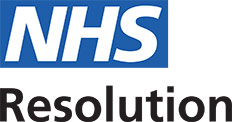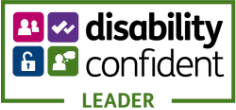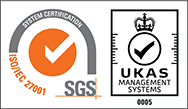Our priorities for 2025/26
We will focus on the efficient delivery of our core services, and to a high standard. In parallel we will drive forward necessary and planned changes and improvements to our services and how we operate, to ensure we are keeping pace with wider changes in the NHS and justice systems. We will take advantage of opportunities such as developments in technology and any upcoming changes in the legal environment.
Strategic priority 1: Fair Resolution
What success will look like: All of our services will focus on fair and timely resolution, as far as possible keeping patients and healthcare staff out of litigation and other formal processes to minimise distress and cost.
In 2025/26, we will:
- Deliver a range of dispute resolution options including resolution meetings, mediation, early neutral evaluation and stock takes. This will include procuring a new legal panel framework.
- Implement effective processes to manage any changes in the legal market such as Fixed Recoverable Costs (FRC).
- Continue to deliver and continuously improve the Early Notification (EN) Scheme and complete its formal evaluation in collaboration with THIS Institute. We will collaborate with stakeholders to further develop the scheme, including the EN family liaison service.
- Deliver the next phase of our Claims Evolution Programme, using our expert workforce more effectively to reduce the amount we spend on external lawyers. Specifically, we will be focusing this year on:
- expanding our Pre-Litigation service, increasing the volume of low and medium-value claims that are being managed in-house
- testing processes for managing higher-value claims in-house whilst exploring whether alternative suppliers could deliver further cost efficiencies
- exploring how technology such as our new system, CaseHub, could enable future process efficiencies
In 2025/26 our Practitioner Performance Advice service will strengthen its capabilities in order to provide an impartial advisory service and respond to a sustained increase in the number of new advice cases Advice has seen over the last couple of years. The service will deliver:
- a consistently excellent case advice service, PLR applicant check process and HPAN scheme.
- an assessment and intervention service that facilitates opportunities for reflective practice and behaviour change.
This work will be enabled and supported by a programme of continuous improvement and we will further develop CaseHub to realise the benefits the system can offer. We will also invite senior healthcare leaders to join a reference group that will inform our service development endeavours, making sure that what we do is aligned with what our service users genuinely need.
Our Primary Care Appeals service will continue to provide prompt and fair resolution of appeals and disputes between primary care contractors, or those wishing to provide primary care services, and the commissioners of primary care services. In 2025/26, we will deliver resources and training to our key stakeholder to build capacity for fair resolution and continue to respond to changing casework requirements to ensure effective use of resources to support primary care delivery.
Across all of our functions, we will also continue to operate and continuously improve our framework to manage concerns referred to our Significant Concerns Group. We will further modernise our operations, including the implementation of SharePoint which will support more effective working practices and improved governance in relation to documentation.
Strategic priority 2: Data and insights
What success will look like: We will contribute our unique data and insights to learn from harm and the response to harm across the health and justice systems.
In 2025/26, our Safety and Learning function and our Advice service will continue to work in partnership with others in the health system to ensure that we collectively prioritise and rigorously test the work that we do, ensuring that it adds value, can be implemented, contributes towards improvement and will give staff practical tools to implement necessary change.
In 2025/26, we will:
- Work with stakeholders at every level, from frontline clinicians to legal teams and leaders to improve the system-wide response to harm and ensure that options for patients are clearly explained.
- Deliver evidence driven expert views and practical tools through Advice insights and education programmes, to encourage learning with the wider healthcare sector and build local capacity and capability to resolve concerns in a fair, timely and proportionate way.
- Work closely with the DHSC, other government departments and other arm’s-length bodies, contributing our data and expertise. We will continue to support efforts to explore options for change as part of our national role as experts in healthcare compensation claims arising from healthcare.
- Support the sharing of our data and insights by migrating our Claims and Appeals services to CaseHub. By the end of the year, the implementation of our Core Systems Programme will be complete. As part of our business-as-usual activity, we will continually improve and update the functionality of CaseHub.
Strategic priority 3: Maternity and neonatal care
What success will look like: Our Early Notification (EN) and Maternity Incentive Schemes (MIS) will help to drive tangible improvements both in outcomes but also the response to harm, drawing on learning from obstetric and neonatal claims.
We recognise that avoidable errors in maternity and neonatal services still occur and that incidents have devastating consequences for the child, mother and wider family, as well as the NHS staff involved. We can never reverse the damage that has been caused, but we can play our part to support those affected by these incidents and bring in measures tocontribute to improved maternity and neonatal care.
In 2025/26, we will:
- Continue to deliver and improve the Maternity Incentive Scheme (MIS) and complete its formal evaluation in collaboration with THIS Institute.
- Support a just and learning culture in maternity and neonatal services.
- Support cross-system action to tackle maternal and neonatal health inequalities.
- Continue to offer our maternity team reviews via our Advice service.
- Work collaboratively with partner organisations who contribute to the delivery of safe maternity and neonatal care, including via the MIS Clinical Advisory Group and representation on national steering groups and committees.
- Deliver timely investigations and fair support and compensation to harmed individuals where negligence has caused the harm.






